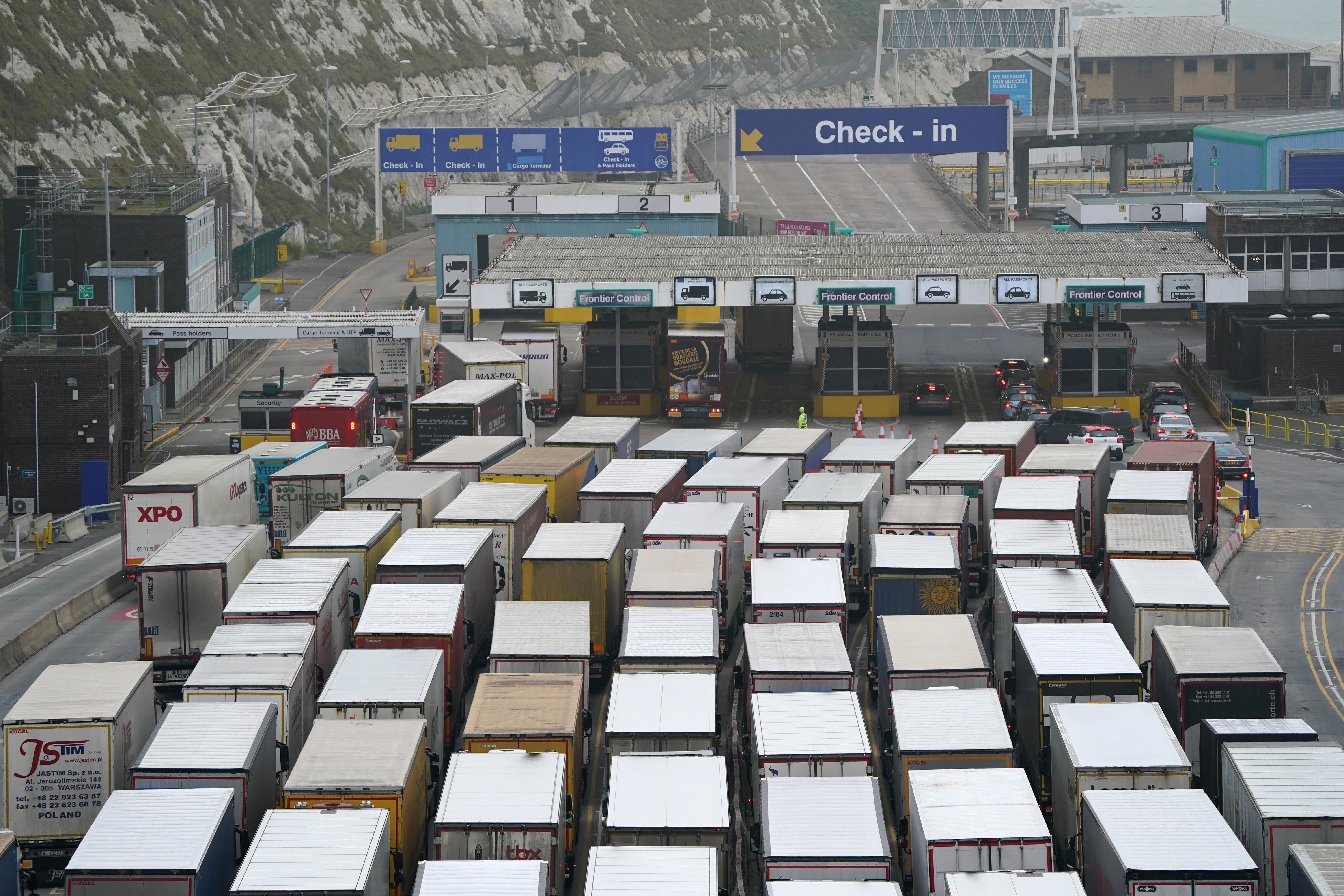Don’t count on Brexit being fully implemented before the next election
New import and export rules and delays are hitting smaller firms especially hard, says Sean O’Grady


How’s Brexit going? In certain respects it either hasn’t quite happened yet, or it has and the British government doesn’t like the consequences, foreseen or not. Endless and futile attempts to reopen the Northern Ireland protocol or activate partial unilateral withdrawal (Article 16) fall firmly into the first category. So does the Channel refugee crisis. The endless delays to imposing Britain’s new sovereign import regulations on goods from the EU is the most egregious example of the latter.
Far from new opportunities and cheaper food for the British people, Jacob Rees-Mogg – the high priest of Brexit – has announced a fourth delay to physical checks on fresh produce imported from the European Union. To no one’s great surprise, after almost six years since the referendum, the technology and the infrastructure isn’t ready for the UK fully to “take back control” over its borders. Non-Brexit factors such as the operational collapse of P&O Ferries, the Ukraine war and Covid-related shortages haven’t helped smooth supply lines.
In an audacious claim, Rees-Mogg has declared the long-term failure to get Brexit done as a fine example of Britain exercising its freedom of manoeuvre, by managing the status quo. In theory, and within the terms of the EU-UK Trade and Partnership Agreement, the British could throw up all manner of bureaucratic obstacles to the import of prosciutto di San Daniele or artisanal French mountain cave cheese, for example, but has graciously declined.
The potential problem for the UK, postponed again, is the mirror image of the one EU importers of British produce face going in the opposite direction. The costs in time and money faced by companies can be prohibitive, given profit margins and, say, preparing particular products to align with different rules. These new obstacles to trade, broadly unknown since the single market in 1992, hit smaller companies disproportionately hard, and have contributed to a generally disappointing UK trade performance with Europe.
Of course the government could extend its largesse, under World Trade Organisation (WTO) rules, and remove tariffs and regulatory checks to a much wider range of countries – but only provided there is a free trade deal. A completely open border for goods and services, in theory, would certainly tend to reduce prices in British shops and ameliorate the cost of living crisis. To an extent some of this has been happening with the Australian trade deal, for example, with lamb import quotas to be phased in over 15 years.
The problem there is that large swathes of British farming and manufacturing, from sheep farmers to steel makers, would be wiped out within months by an open border, let alone any consideration of food safety and animal welfare. Unless subsidised in an unsustainable and possibly illegal way under WTO rules, the British countryside and its remaining industrial areas would suffer depression and dislocation. The process may be slow or it may be rapid, but it will be significant and unpopular.
Such is the continuing political threat to entrenched consumer and producer interests in Britain that it seems highly unlikely that Brexit will be fully implemented by the time of the next election, even if the EU doesn’t start any trouble about it. At the present rate of progress, some may wonder if Brexit will ever get done.



Join our commenting forum
Join thought-provoking conversations, follow other Independent readers and see their replies
Comments